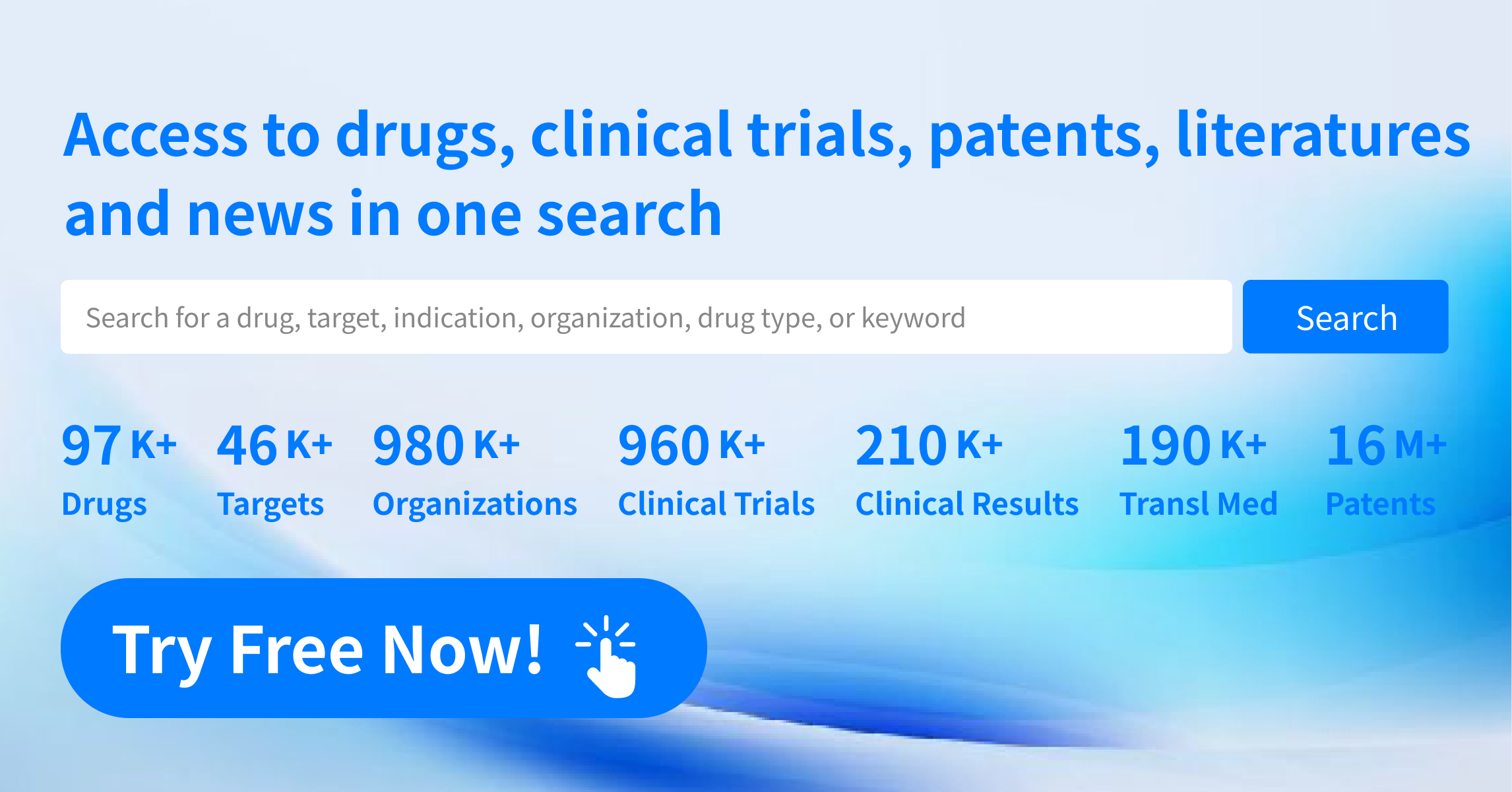Pharma Frontiers: Daily Digest of Global Pharmaceutical News – Oct 10
1.BeiGene's PD-1 Antibody Commercially Launched in the U.S.
On October 9, BeiGene announced the official commercial launch of TEVIMBRA® (tislelizumab) in the United States. The drug is approved for the treatment of adult patients with unresectable or metastatic esophageal squamous cell carcinoma (ESCC) who have previously undergone systemic chemotherapy (excluding PD-1/L1 inhibitors). Tislelizumab had earlier received FDA approval this year. The approval was based on the results of the RATIONALE 302 trial, which met its primary endpoint in the intent-to-treat (ITT) population. Compared to chemotherapy, tislelizumab demonstrated statistically significant and clinically meaningful survival benefits. In the ITT population, the median overall survival (OS) for the tislelizumab group was 8.6 months (95% CI: 7.5, 10.4), compared to 6.3 months (95% CI: 5.3, 7.0) for the chemotherapy group. The FDA is currently reviewing TEVIMBRA® for first-line treatment of patients with locally advanced unresectable or metastatic ESCC, as well as for first-line treatment of patients with locally advanced unresectable or metastatic gastric or gastroesophageal junction (G/GEJ) adenocarcinoma.
2.Lilly's IL-23 Antibody Submitted for Approval in China
On October 9, the CDE (Center for Drug Evaluation) website announced that Eli Lilly's application for the marketing of mirikizumab injection and its subcutaneous form was accepted. Public information indicates that this drug is Lilly's IL-23 inhibitor, mirikizumab. Mirikizumab is a humanized IgG4 monoclonal antibody that binds to the p19 subunit of IL-23, blocking the IL-23-mediated inflammatory response. In October 2023, the U.S. FDA approved mirikizumab for the treatment of adult patients with moderately to severely active ulcerative colitis (UC), making it the first IL-23p19 antagonist for this patient group. Previously, this product was included by China's NMPA (National Medical Products Administration) as a breakthrough therapy, and it is intended for development in treating adult patients with moderately to severely active Crohn's disease.
3.$525 Million Acquisition! Pfizer Halts Development of Oral RSV Therapy
On October 7, the ClinicalTrials.gov website revealed that Pfizer had terminated two clinical studies investigating Sisunatovir for the treatment of respiratory syncytial virus (RSV) infection. Sisunatovir is an oral RSV fusion protein inhibitor designed to prevent the fusion of the RSV virus with host cells. Initially developed by ReViral, Sisunatovir was its core product. In April 2022, Pfizer acquired ReViral for $525 million, gaining access to RSV drug candidates Sisunatovir and RV-299 (an RSV N-protein inhibitor). However, RV-299 had already been removed from Pfizer's pipeline earlier in 2023.
4.Medilink Therapeutics Initiates Phase III Clinical Trial of B7H3 ADC for Nasopharyngeal Carcinoma
On October 7, Medilink Therapeutics registered a Phase III clinical trial for its novel B7H3 ADC drug YL201 for the treatment of nasopharyngeal carcinoma (NPC) on ClinicalTrials.gov. The trial aims to enroll 400 patients with recurrent NPC, comparing YL201 to chemotherapy, with initial results expected by the end of 2027. The primary endpoints are overall response rate (ORR) and overall survival (OS). At the 2024 ESMO meeting, Medilink presented the latest clinical data for YL201. As of August 9, 2024, among 276 patients who had at least one post-baseline tumor evaluation, the overall ORR was 44.6%, and the disease control rate (DCR) was 83.7%. In the NPC cohort, which included 70 evaluable patients, the ORR was 48.6% (ORR ≥ 2.0 mg/kg was 48.6%), and the median progression-free survival (mPFS) was 7.2 months (mPFS ≥ 2.0 mg/kg was 7.2 months). Among patients who had received at least two lines of prior standard therapy, the ORR was 51.0%, with an mPFS of 7.0 months, comparable to the overall NPC population.
5.InnoCare Pharma's TYK2 Inhibitor Meets Primary Endpoint in Phase II Study for Moderate-to-Severe Psoriasis
On October 9, InnoCare Pharma announced that its novel tyrosine kinase 2 (TYK2) inhibitor ICP-488 achieved the primary endpoint in a Phase II clinical trial for the treatment of moderate-to-severe plaque psoriasis. After 12 weeks of treatment, ICP-488 demonstrated excellent efficacy and safety, meeting multiple efficacy endpoints. This Phase II trial was a multicenter, randomized, double-blind, placebo-controlled study designed to evaluate the efficacy and safety of ICP-488 in Chinese adult patients with moderate-to-severe plaque psoriasis. A total of 129 patients were enrolled. In the 6 mg and 9 mg once-daily dose groups, the PASI 75 response rates were 77.3% and 78.6%, respectively, compared to 11.6% in the placebo group, showing significant statistical differences (p<0.0001). The PASI 90 response rates in these two dose groups were 36.4% and 50.0%, respectively, while the placebo group was 0% (p<0.0001). The PASI 100 response rates were 11.4% and 11.9%, compared to 0% in the placebo group (p<0.05). Additionally, the sPGA 0/1 response rates were 70.5% and 71.4%, versus 9.3% in the placebo group (p<0.0001).
6.Merck Collaborates on Developing New Targets for Inflammatory Diseases
On October 8th, Mestag Therapeutics announced that it has entered into a licensing and collaboration agreement with Merck to identify new targets for the development of therapies for inflammatory diseases. Mestag is dedicated to leveraging new insights into fibroblast-immune interactions, aiming to develop impactful treatments for patients with cancer and inflammatory diseases. Mestag will utilize its Reversing Activated Fibroblasts Technology (RAFT) platform, a patented system specifically designed to simulate the pathogenic roles of fibroblasts in human diseases, to identify novel drug targets. Merck may choose to license one or more targets, up to a pre-determined number, and will be responsible for the discovery, development, and commercialization of the therapeutic drugs that result. According to the terms of the agreement, Mestag will grant Merck an option to exclusively license the potential targets identified through the collaboration, for the development and commercialization of therapeutic drugs tied to a specified number of those targets. In return, Mestag will receive an upfront payment and usage fees, and is eligible to receive option fees and downstream payments that could total up to $1.9 billion.
How to obtain the latest research advancements in the field of biopharmaceuticals?
In the Synapse database, you can keep abreast of the latest research and development advances in drugs, targets, indications, organizations, etc., anywhere and anytime, on a daily or weekly basis. Click on the image below to embark on a brand new journey of drug discovery!




